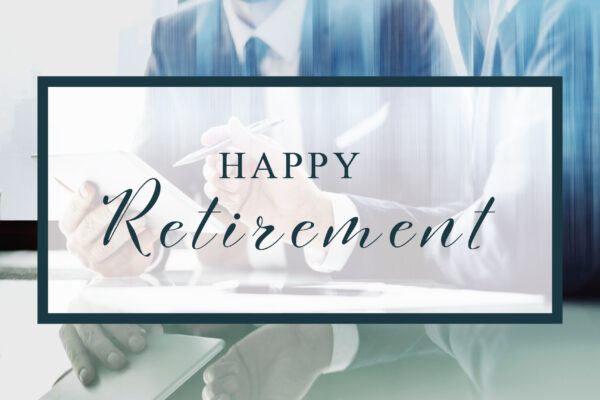
It has been recognised for more than a decade now that the number of people exiting the financial advice industry in the UK greatly exceeds the number of people entering it. This is bad news for all concerned – not least for millions of existing and potential clients.
The issue has its origins in the Retail Distribution Review (RDR), which came into force at the start of 2013. One of the initiative’s most notable innovations was a requirement that advisers should be qualified to a level equivalent to a certificate of higher education.
Needless to say, the most positive corollary of this move was an immediate raising of professional standards. As a result, the days of tens of thousands of “independent insurance brokers” – many of them self-appointed and of questionable proficiency – could never return.
Unfortunately, the law of unintended consequences also had its say. The mass exodus – triggered mostly by the prospect of additional studies and exams – rapidly created an “advice gap”.
It is a gap that has still not been filled today. In fact, the breach is becoming increasingly alarming. The average age of an adviser is now close to 60, and relatively few of those who retire are being replaced – or, better still, succeeded – by younger counterparts.
This gives rise to an uncomfortable question: will there actually be anyone left to advise the generations to come? The prospect of the IFA community shrinking to nothing might sound unduly dramatic, but a trajectory of decline will undoubtedly continue if we fail to address two key challenges.
Challenge nº1: building a new talent pipeline
In 2022, according to Financial Conduct Authority data obtained by a Freedom of Information request, almost three quarters of the 31,144 individuals registered to provide retail investment advice were aged 40 or over. By jarring contrast, just 8% were aged under 30.
In addition, nearly 5,000 advisers were aged 60 or above. It seems safe to assume most of these were on the cusp of retirement or giving it serious thought. Meanwhile, only 426 advisers were under the age of 25.
As well as presenting an obvious problem in terms of numbers, this disparity is extremely worrying – and maybe even embarrassing – in an era when the merits of diversity are rightly acknowledged. An industry in which older age groups are so dominant cannot be regarded as genuinely inclusive.
One promising avenue for restoring some kind of balance is the widespread adoption of apprenticeship schemes. These can feed a new pipeline of talent and so help the IFA community lay firmer foundations for the long term.
Truly Independent has taken on several apprentices in recent years. It has been fascinating to see them develop and to watch them hone and demonstrate their own particular capabilities.
In our experience, the secret lies in choosing apprentices well and allowing them sufficient space and time to show what they do best. With a view to securing lasting buy-in, it is also vital that they fully appreciate the huge role financial advice has to play in making a positive difference to other people’s lives and enriching society as a whole.
Challenge nº2: ensuring succession
Of course, there is a sizeable span between apprentices and 60-something veterans. The former are just embarking on their careers, while the latter may be getting ready to ride off into the sunset. So what about the advisers who are neither newbies nor old hands?
This is where the enormous importance of succession becomes clear. A remarkable irony of our industry is that many advisers spend so much time thinking about other people’s retirement and so little thinking about their own.
Ideally, succession should be a non-event. Rather than decisively marking the end of an era – in some instances even to the extent that longstanding clients are abruptly cast adrift – it should take the form of a seamless transition that unfolds over a period of several years.
Naturally, this demands considerable preparation. For example, an adviser who intends to step down at 65 should probably begin planning a handover at the age of 60. After all, passing on a business that has very likely been built up over a lengthy period is no minor undertaking.
Truly’s approach involves pairing a retiring adviser with a suitably qualified successor. We use a two-stage acquisition process that lends itself to synergies, encourages continuity of service and aims to benefit all stakeholders – clients included.
A major objective is to avoid any discernible break in activity, with the buyer able to pick up exactly where the seller leaves off. In effect, the passing of the torch should go practically unnoticed.
The danger of complacency
There were more than 200,000 “independent insurance brokers” in the UK in 1990. On the face of it, there might be much to be said for such a lofty total – especially if you believe, as Truly does, that everyone can benefit from financial advice.
No-one, though, benefits from financial advice that is poorly informed, misleading or thoroughly disingenuous. The reality is that many of those 200,000-plus “experts” would have fallen short of the more exacting standards that have been applied since the RDR.
Today there are around 15,000 IFAs. It is comforting to know they have all proved themselves capable of their chosen vocation, but there is no escaping the fact that their number has plummeted. More people than ever need advice, yet there are far fewer professionals to give it.
The view in some quarters is that robo-advice can plug not only this gap but any others that might follow. It can certainly help, and Truly never hesitates to utilise technology whenever it offers a pragmatic and cost-effective solution.
Yet most clients still value the personal touch. They are happier to have their financial journey guided by a fellow member of the human race – one with the appropriate training, knowledge and track record – than to have it dictated by a machine.
A future in which no such service is available is genuinely unconscionable. As an industry, we should not make the mistake of thinking it is also impossible. There are ways and means of reversing the trend of the past decade – and we all need to embrace them.
Katie Brinsden is Managing Director of Truly Independent.


